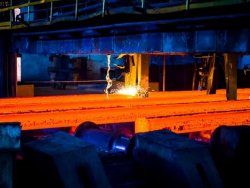Thyssenkrupp Electrical Steel, a subsidiary of German steel company Thyssenkrupp, has halted production at its Gelsenkirchen plant for one week amid growing market pressure from cheap Chinese steel imports, according to German media reports.
The closure will affect about 1,200 employees, while all operations, including administrative work, will be temporarily suspended. In addition, if weak market conditions persist, a short-term work scheme remains under consideration.
The growth of cheap imports affects orders
The company said the decision was due to the influx of Chinese steel at a reduced price, which is sold below the cost of domestic production, which significantly reduces the volume of orders for electrical steel products.
The sources explained that discussions about short-term work are not related to plant competitiveness, but to distorted market conditions caused by dumped imports.
Political reaction and industrial problems
Local political representatives expressed concern about the situation. Felix Langer, a representative of the Left Party in Gelsenkirchen, criticized the lack of an effective industrial policy, saying that "workers are paying the price for political failures again."
The party called for mandatory protection measures for strategic sites such as Gelsenkirchen, calling it a "central building block of the energy transition."
In a statement of solidarity, the Left-wing Party called on the federal government to protect industrial jobs and technological know-how, warning that uncontrolled dumped imports threaten both employment and Germany's green transition goals.






